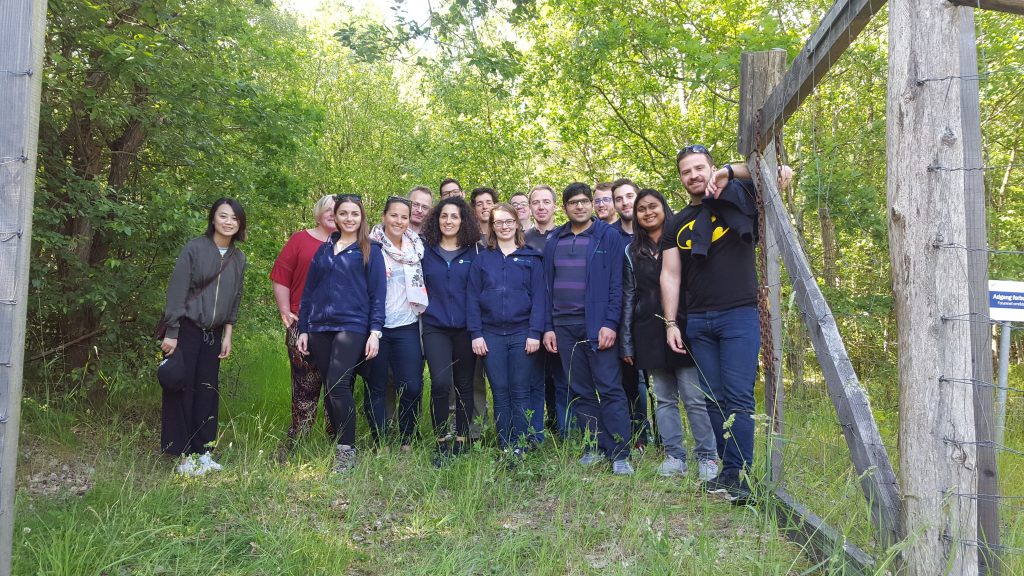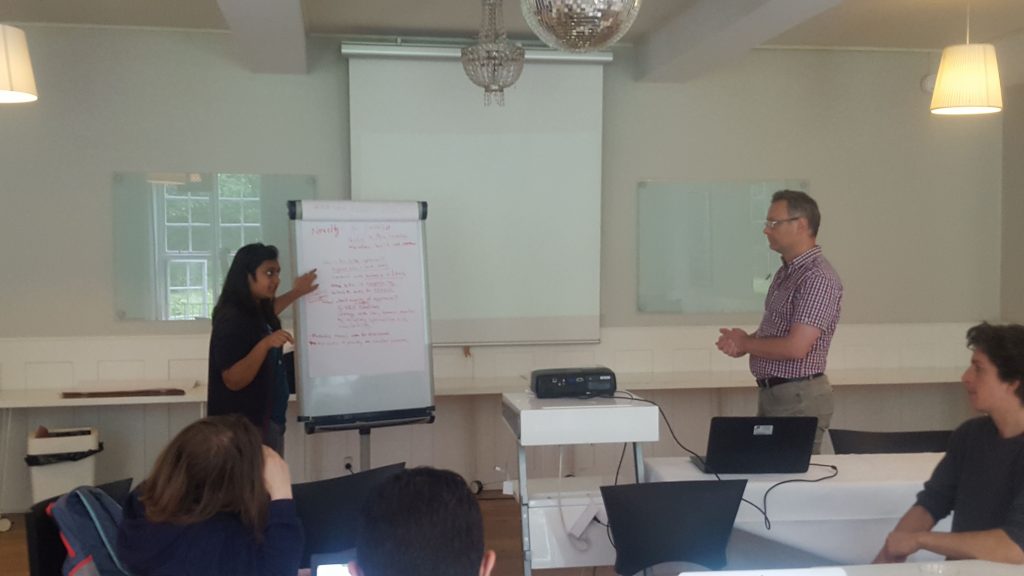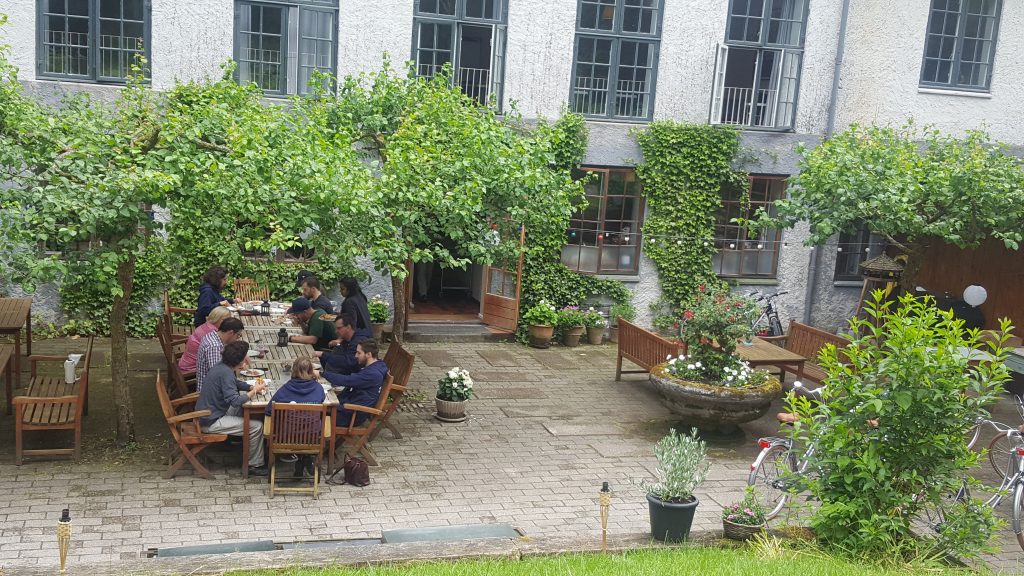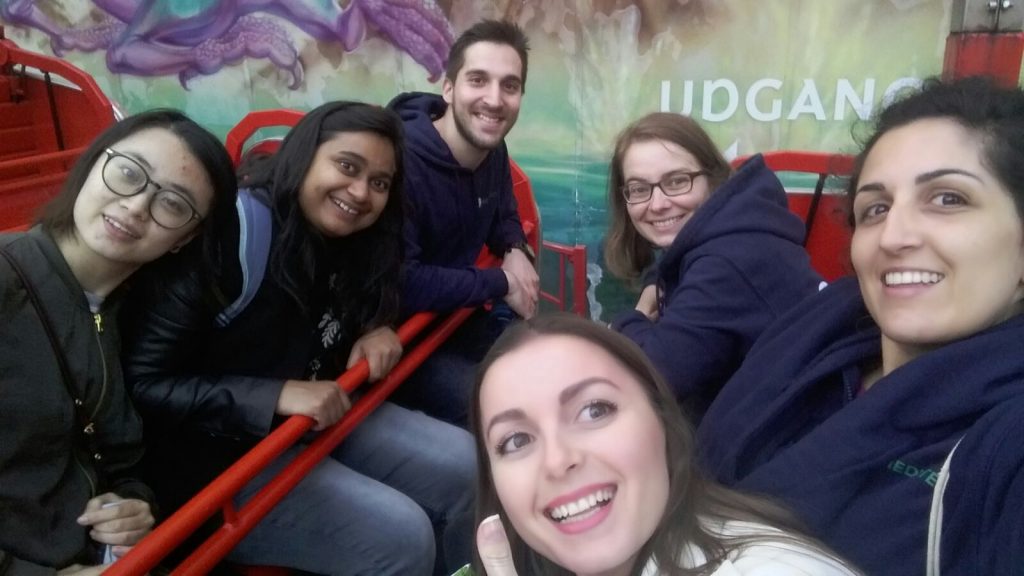Scroll…
Scroll…
Scroll…
Click…
Download…
Read…
Thanks, Web of Science!
This is how every one of us feels after finding a paper that describes a statistical approach to the experiments we are doing. Nanoseconds of utmost joy, a colossal amount of gratitude towards the author, the publisher, and Web of Science for sharing the knowledge. And what if the same concept is shared by someone to us through a talk? This knowledge sharing while giving appropriate examples from different studies was done by the tutors at Summer School 2.
This summer school promised to hone our skills in statistical applications and paper writing. This was actually an understatement. The truth is that we were immersed in a captivating series of lectures, rewarding discussions, and individual study time to apply newly learned concepts to our own projects. Summer School gave us the chance to learn things like:
The importance of microbiology in risk assessment
Remediation of contaminated sites is a complex, lengthy, and costly procedure. To decide the remediation goals, it thus becomes imperative to understand the risks to human health and environment due to contaminants. Most of the environmental risk assessment framework used for decision making at present only accounts for chemical analysis. It seems equally important to understand the health of soil in terms of the microorganisms; the effect of metal content on the growth and development of microorganism colonies, as much as knowing the total metal concentration and their bioavailability. To further elaborate our understanding on the subject we visited the Collstrop site to see how different contaminants may cause risk to environment.
Environmental risk assessment methods should try to reveal the soil health in terms of ecology, toxicity, and chemical analysis as defined in the TRIAD approach.

Paper writing skills
Correcting one report, modifying the next; hopping from one experiment to another; meandering from one university to a different university for a secondment; presenting a poster, giving an oral presentation; preparing a to-do list to glancing at a done list; scheduling ICP-MS time to learning SEM; running a code on R to installing MATLAB: life is always a roller-coaster. Amidst all this, one thought that keeps on popping into our brains: AM I GOOD AT WRITING?
The problem was solved by the session on paper writing that told us that every researcher should first identify themselves as a writer. How a simple thing like saving the bibliography in a separate folder for the article we are working on right now, can save a lot of time. The introduction should always follow a funnel approach and we should first start working on the body of the article were some of the tips shared to make writing easier.
Like all things that are worthwhile, it takes time to publish; it also gets easier with practice. So don’t wait any longer. Start writing that paper now.
Presentation Skills
This time we had a project meeting just before the summer school. Every presentation was recorded on a video camera. Supervisors were given a form to comment on the presentation skills of the ESRs.
Ohhh no… I did not rehearse… you did not tell us… this is not fair, we just came yesterday night and did not get a proper sleep. Yes, this is how we all reacted to the idea of Julie-Anne and Nick. But we had a sigh of relief, when these forms and videos were shown to us again in groups and we had chance to discuss among ourselves on how we can improve. There was no mentor, no supervisor telling us we were right or wrong. We were all friends set on a mission to improve ourselves, to help each other, looking at videos, eating the evening snacks and telling each other.
We may have discovered a simple procedure to help in the remediation of brownfield sites, now we should get out there and tell everyone.
Discipline
Preparing for next set of experiments in lab at night to submitting a report in wee hours of morning. We all have control of our schedules. One of the biggest benefit of being a PhD student is that we have all the freedom to plan our day according to the workload. In such a scenario, we often fall out of daily routine.
So here came lessons on discipline. Summer School was organised at away from the hub-bub of Copenhagen. So if we woke up late and missed the breakfast, there was no 7Eleven nearby. Lunch timings and dinner timings were fixed. Finishing dinner till 7:00 pm led to a situation when some of us were running in night, starving and looking in each other’s room for food. This is how we were all given a chance to live a healthy life. Waking up early to attend lectures, going for long walks to see deers and stroll on the beach in the evening, getting to sleep on time kept us motivated and energetic throughout. It was also important for inculcating self discipline.
Self discipline is when your conscience tells you to do something and you don’t talk back.
W.K. Hope
Statistical methods and application of R
Hovering a cursor from MS Word to MS Excel; writing an email, to using Mendeley for managing my bibliography; plotting maps on QGIS, to using SURFER for interpolating the data: we forget to pay heed to R, or to any statistcial software for that matter.
Somehow, everything that we forget or do not pay attention to, was included in the program of Summer School. The session on application of R taught us about writing code and data analysis using linear regression method, Principal Component Analysis and clustering approaches.
Statistical methods provide us with the conceptual foundations in quantitative reasoning to extract information from the sea of data.
Team Building
Missing a call from one of our fellow researchers, replying late on WhatsApp; looking at our Facebook feed, finding out about our friend’s achievement through Researchgate: there are multiple occasions when we find ourselves guilty of not remaining in touch with our friends. When an interdisciplinary project has students in five different countries, this is something that is bound to happen. To make the bonds of friendship stronger, no stones were left unturned by the organisers. We spent one of our evenings at Dyrehavsbakken Amusement Park. It is the world’s oldest amusement park. Pedaling cycles to the park, holding each other’s hands on a horror ride, shouting together in another ride gave a joyful refreshment to our friendship.
Away from the city, in a lush green location, learning from people who know their subject down to the minutest detail. Lessons not just on science, but on every aspect of being a successful researcher, was definitely a wonderful experience.


